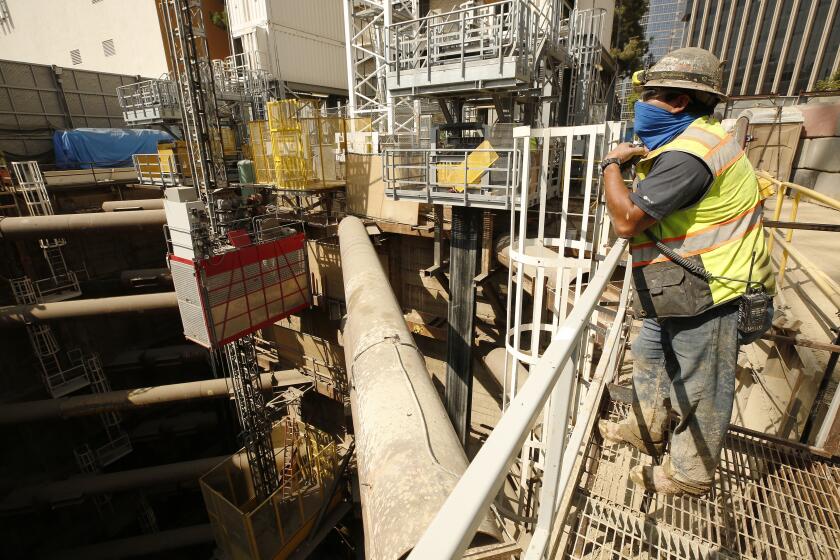Mayor Bass takes over Metro as it undergoes huge expansion, copes with low ridership and crime
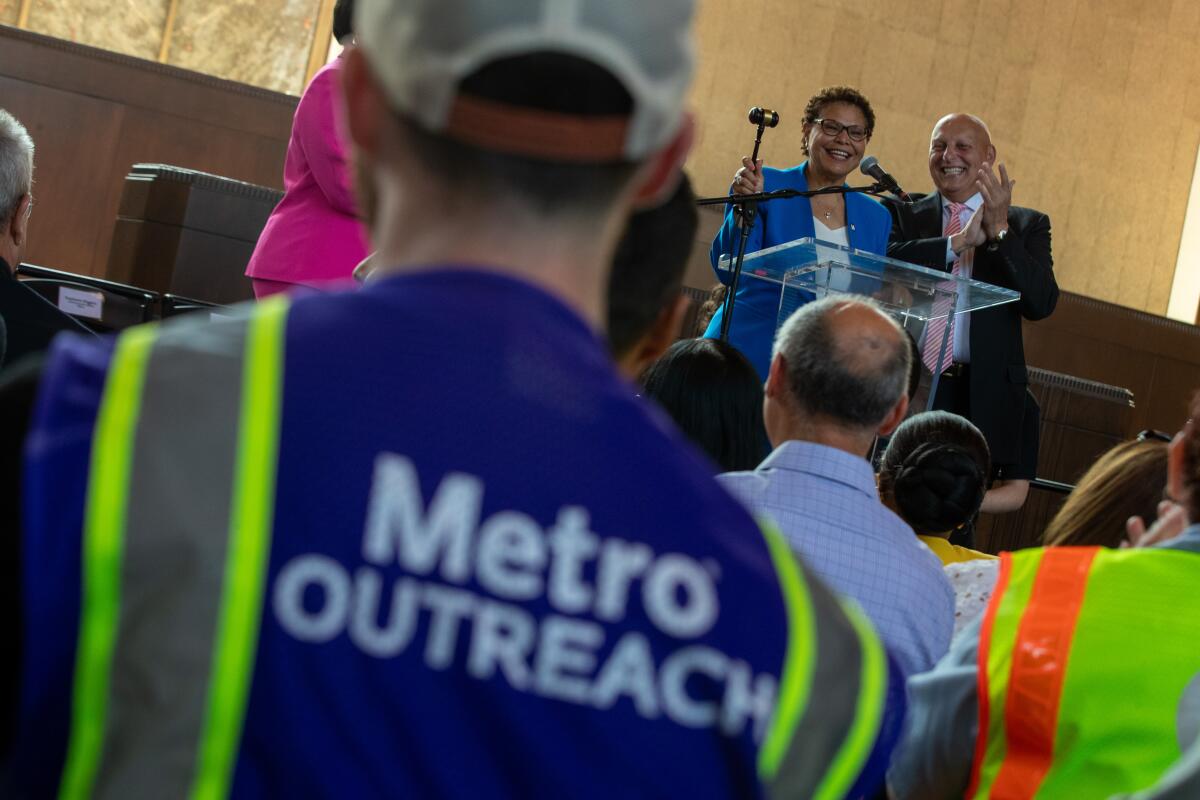
Taking the helm of the board charged with the nation’s second-largest transit system, Los Angeles Mayor Karen Bass on Monday laid out her priorities at a perilous moment for the agency.
The Los Angeles County Metropolitan Transportation Authority is going through the largest expansion in generations, as ridership sags, unprovoked attacks on operators jumped and its promise of a “car-free” Olympics looms.
“Metro is truly an essential service, but for Los Angeles to thrive in fact, Los Angeles to survive in the future, Metro cannot be mostly a system of last resort. It must be a system of first choice,” Bass said during her first “State of the Agency” address as board chair.
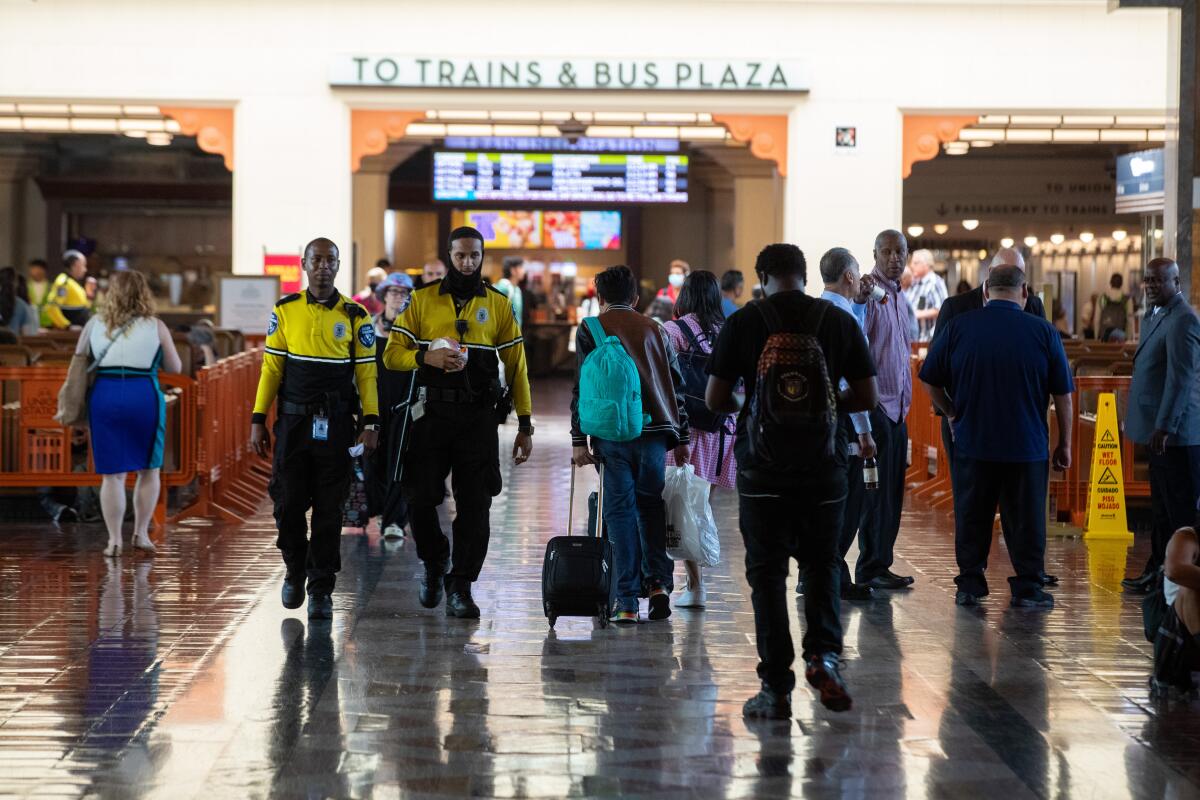
In a packed ticketing concourse hall at Union Station, Bass told a crowd of media, advocates, transit officials and workers that she will continue much of the work already in motion — including a plan to create 10,000 housing units on Metro property, speeding up the frequency of service on subway and light rail lines, and deploying more officers to stem crime.
Although ridership was ticking closer to pre-pandemic levels, it was “still nowhere near where we need to be with the Los Angeles today and certainly in the future,” she said.
“We must acknowledge that ridership is still down,” Bass said. “And the reduction is disproportionately among women, riders who report that they do not feel safe. And we must address the increase in human suffering that we have seen on our system.”
Almost 50 people have died on the system this year, she said. “This is an issue of life and death.”
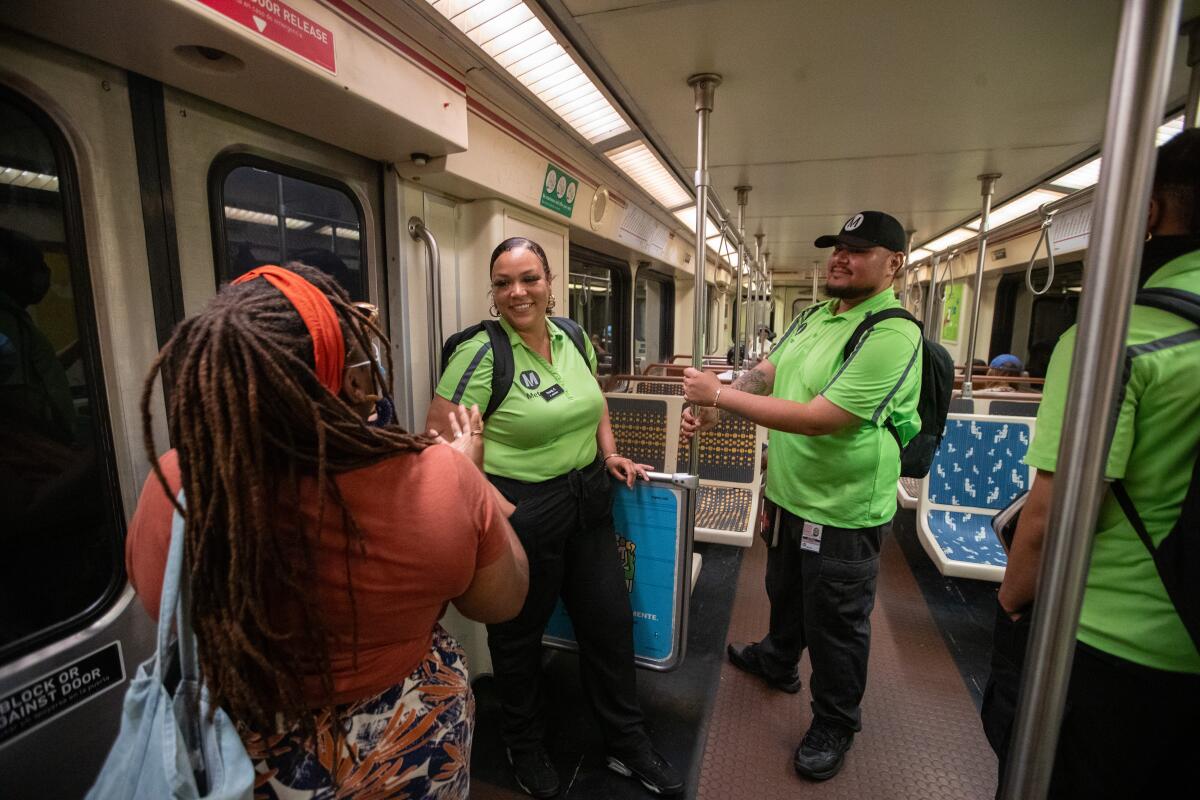
As mayor, Bass has made reducing homelessness her top priority, including people using Metro’s stations, trains and buses for shelter. She said the agency is increasing homeless outreach workers and medical teams in the system. There will also be more officers deployed to the B and D lines and along certain bus routes where the most assaults are reported.
Two bus drivers were stabbed in the last three months. Metro Chief Executive Stephanie Wiggins repeated a pledge Monday that safety is her top priority. Last month the board took a step toward creating its own police force.
“We have an opportunity to create a department that from its inception is here with a holistic approach, one that shows that we respond urgently to crime, but that we prevent crime and deliver the necessary outreach and services,” Bass said.
Among those in the crowd was LAPD Chief Michel Moore, whose officers, along with Long Beach police and Los Angeles County sheriff‘s deputies, patrol the Metro system at a cost of about $173 million this year.
Although there were no new policy initiatives announced, the optimistic speech was the first time Bass spoke so comprehensively about her vision of Metro since taking a seat on the powerful board. Bass, who took over the chairmanship early this month, provided insight into where she will focus her attention.
Although the chair is a one-year position that rotates among the 13 board members, as mayor she controls four seats, giving her a large voting bloc that can push issues such as housing forward. In March, she appointed L.A. City Councilmember Katy Yaroslavsky to replace former board member and Councilman Mike Bonin.
The other two seats she controls are occupied by Jacquelyn Dupont-Walker, founding president of the nonprofit Ward Economic Development Corp., and City Council President Paul Krekorian, who represents the San Fernando Valley. Both are holdovers from former Mayor Eric Garcetti.
Among the issues Bass will grapple with in her tenure as chair are congestion pricing on L.A.’s clogged freeways, whether and how to create a transit police force, and designating the final route for the C Line extension ending in Torrance.
“We are building up one of the world’s great metros, and if we do it right, if we run it right, the people will come and they will enjoy a world-class service befitting of our world-class region,” Bass said.
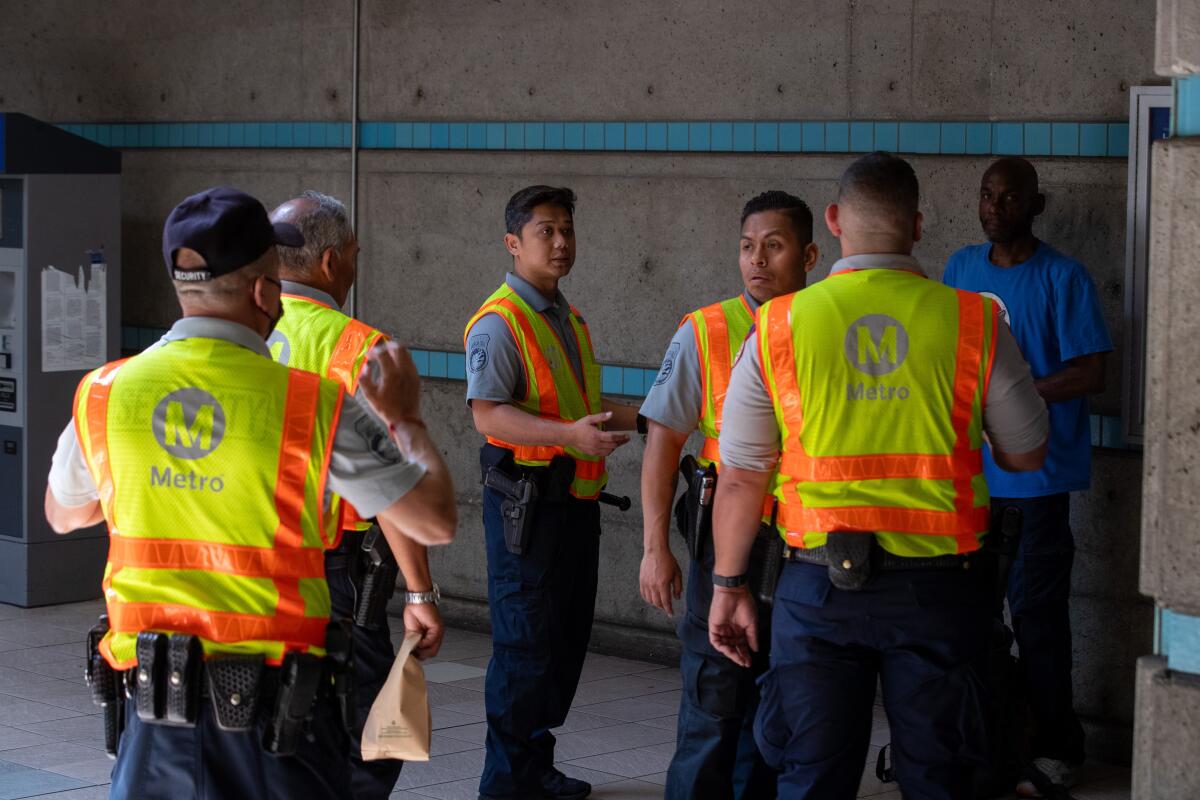
Coming out of the pandemic, the $9-billion agency has struggled to restore a sense of safety on the rail lines and increase ridership. At the same time, it’s building out its public transit system ahead of the 2028 Olympics, with a massive infusion of tax dollars. Next year, the rail line connection to the airport is expected to open. And a line that connects downtown to the Westside is expected to open by 2027. But budget overruns have dogged construction projects, and safety issues interrupted work on the D Line.
Los Angeles transit officials have shut down construction of the Westside’s $2.4-billion Purple Line Extension for two weeks amid a litany of “serious safety concerns” that have injured dozens of workers since July 2021.
Denny Zane, founder of MoveLA, said Bass’ optimism heartened and surprised him given the significant challenges ahead, including potential belt-tightening from Sacramento. The group helped build the coalition that sponsored Measures R and M, the largest source of local tax revenue for Metro projects.
“It’s clear she knows voters expect progress in the county’s ambitious transit program. But the voters also want the system returned to being safe, secure and reliable. She knows what she has to do and the complexity of the problem,” Zane said. “They have the leadership and the resources, but it’s a hell of a challenge.”
During her mayoral campaign, Bass vowed to make free transit a reality. She made no mention of it during her speech, but asked about it afterward, she said, “That is still a goal.”
“The question is what is the goal during my tenure of one year.”
One of those pushing for fareless transit was Oscar Zarate, director of organizing for Strategic Actions for a Just Economy. Sitting in the crowd, he said he was disappointed but hoping that Bass might resurrect the issue during the next board meeting.
“She committed to make sure that no Angeleno would ever have to pay for a bus or train again,” he said. “I think that really resonated with a lot of people in the community. I’m hoping that she mentions it at our first board meeting.”
More to Read
Sign up for Essential California
The most important California stories and recommendations in your inbox every morning.
You may occasionally receive promotional content from the Los Angeles Times.

